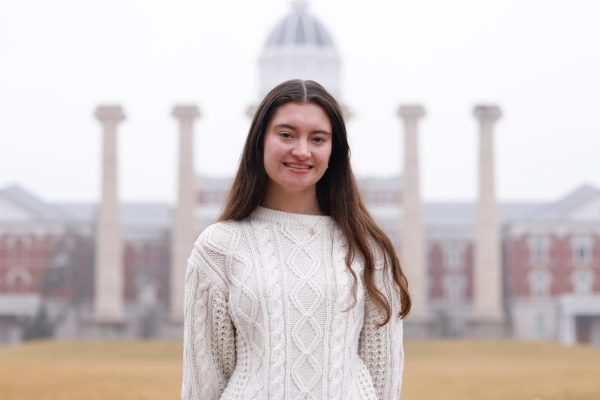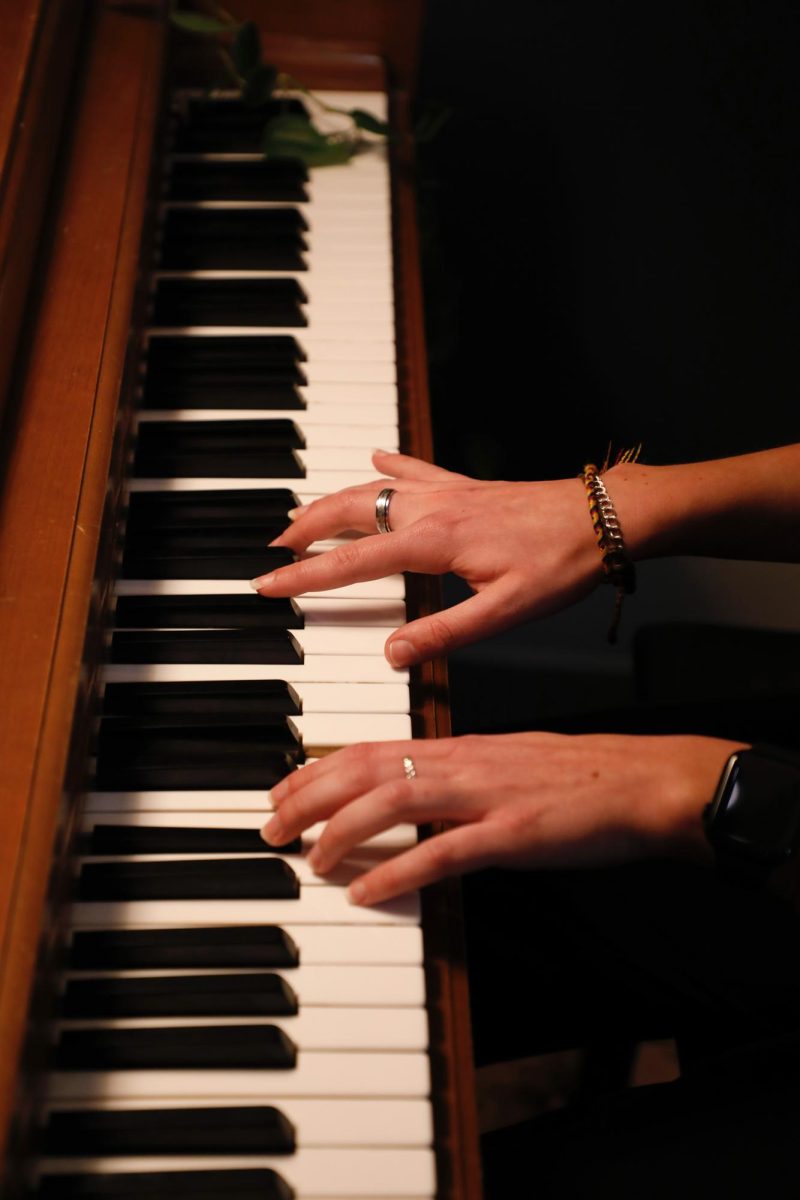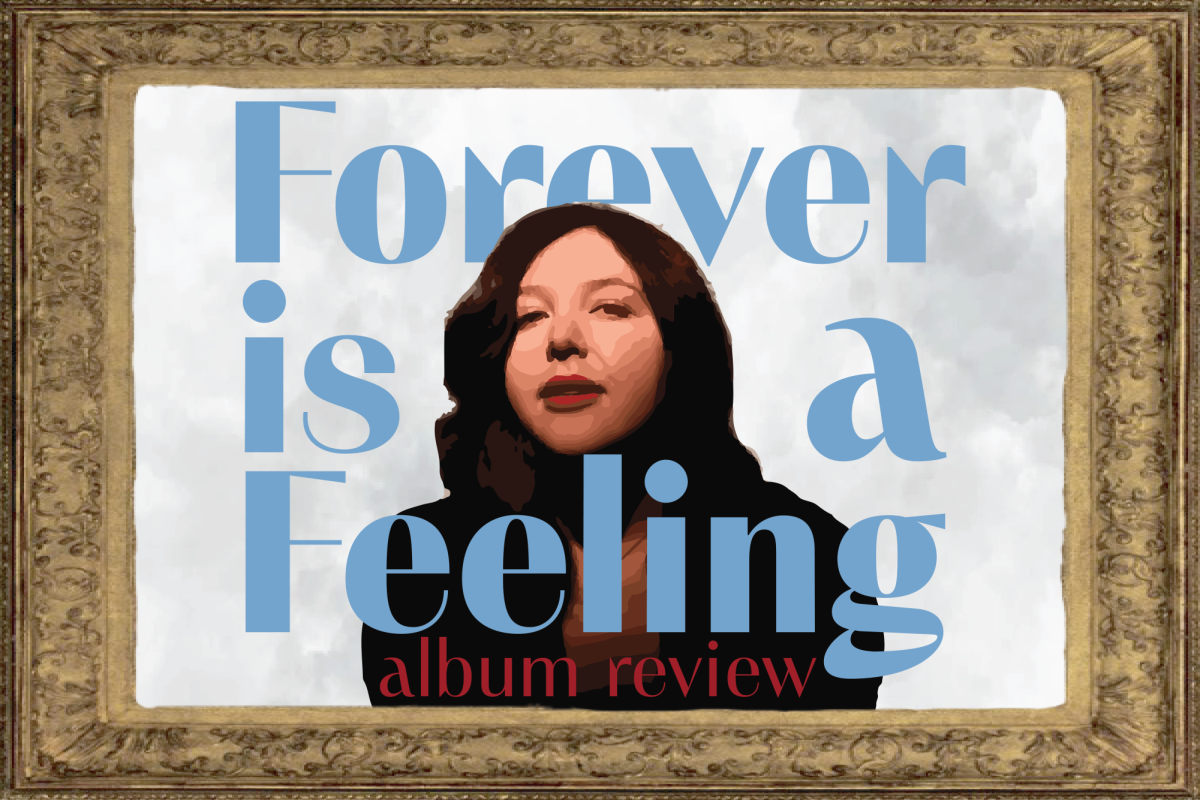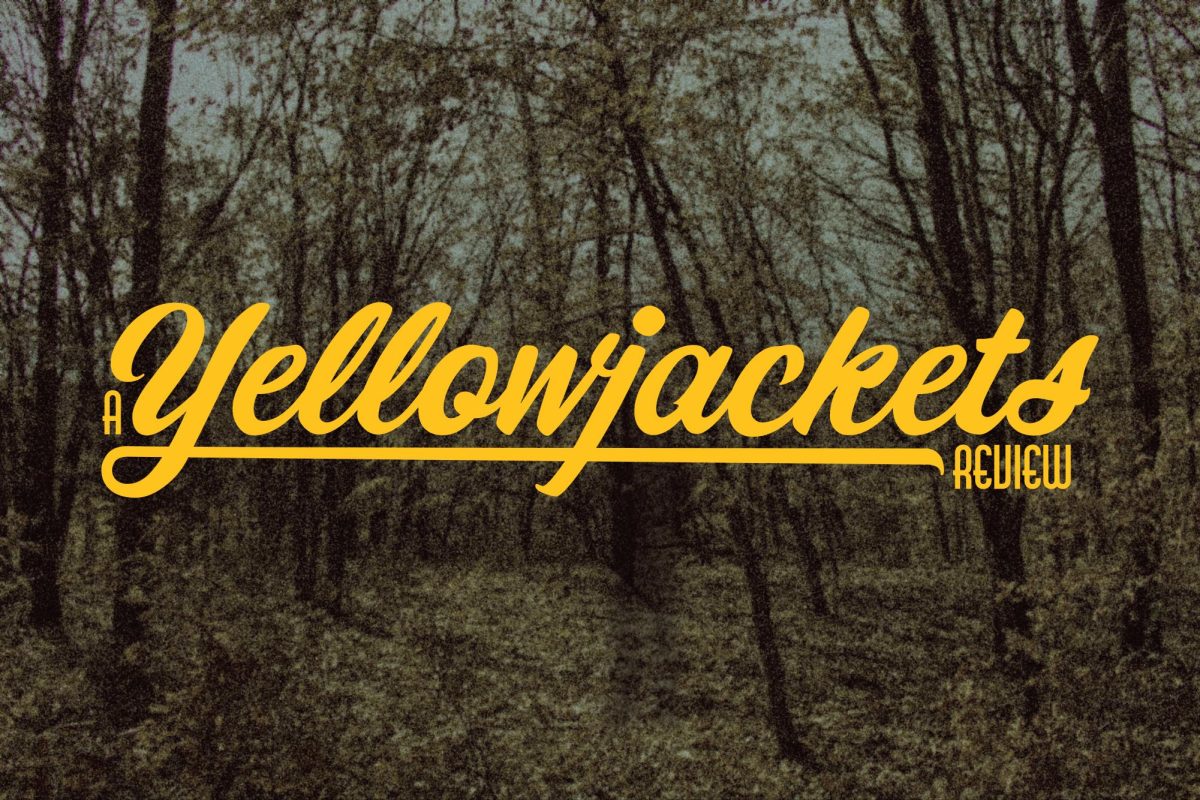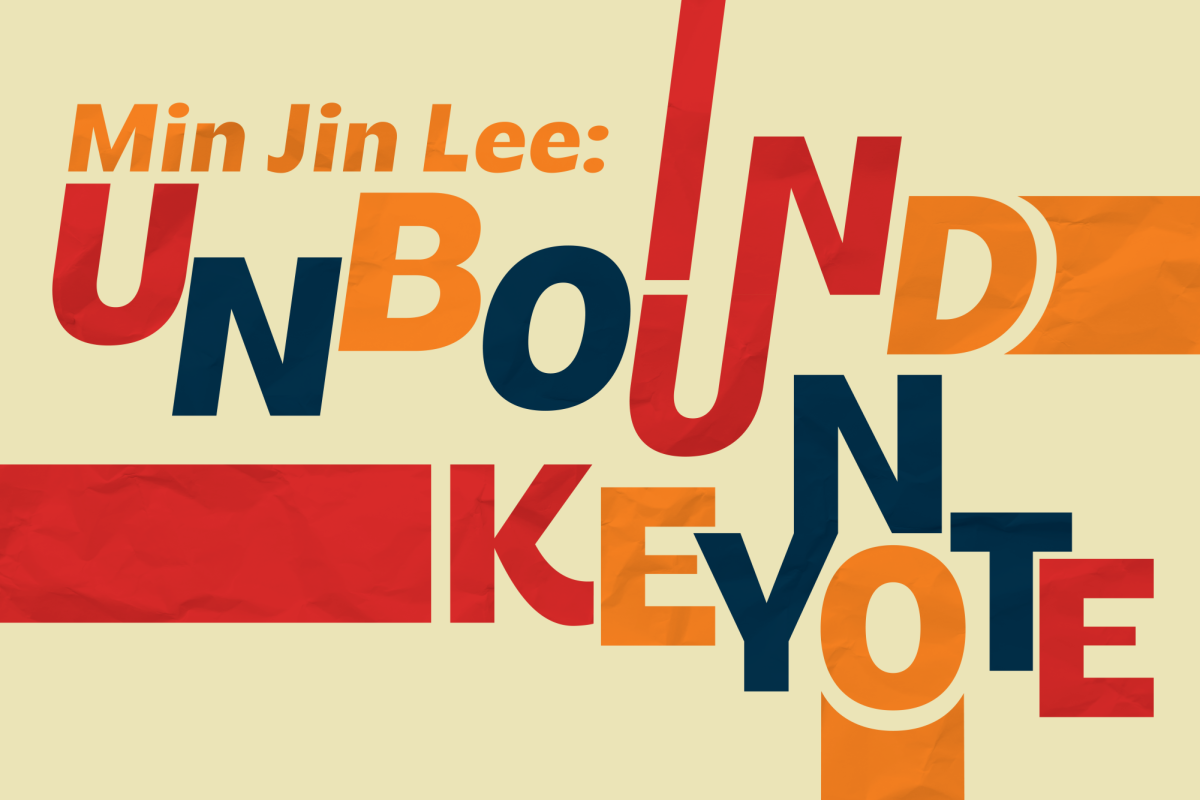In an interview with The Maneater, the Pulitzer Prize Finalist described her college experiences and novels, offering advice to aspiring writers.
In an interview with The Maneater the morning before her appearance at MU, author and journalist Elif Batuman answered questions about her novels, “The Idiot” and “Either/Or,” gave advice to aspiring writers and reflected on her own experiences as a student, journalist and writer. Batuman spoke to an eager crowd of students and community members on the evening of Sept. 28 in Tate Hall. Batuman read from her recent novel “Either/Or” and answered attendee’s questions as part of the MU Visiting Writers Series hosted by the English Department.
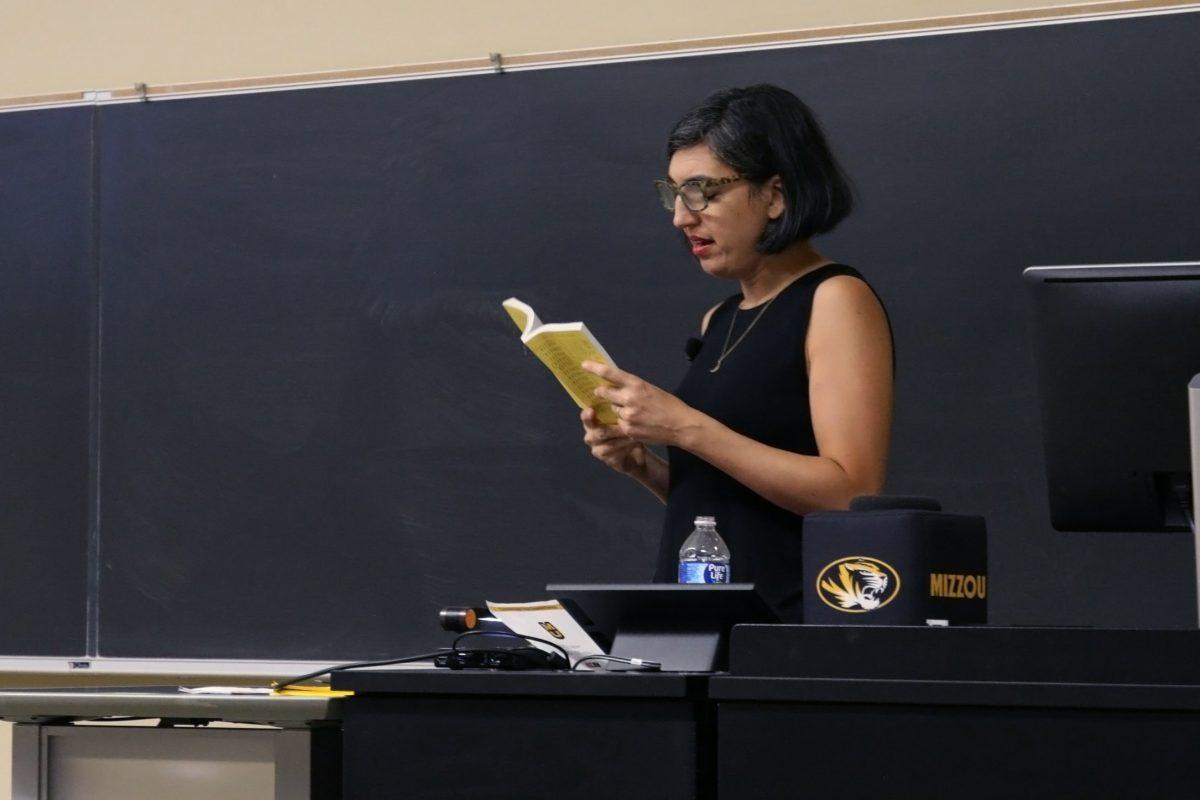
This interview has been edited for length and clarity.
Q:
Was writing your initial aspiration?
BATUMAN:
I wanted to be a writer since I was a little kid, and I used to always write little stories in notebooks, I’m not completely sure why. My parents are both doctors, but we had a lot of books around the house, [and] I was alone a lot and I like to read so I guess it was because of that.
Q:
Would you say the characters in “The Idiot” were inspired by some of your experiences and people you have met, or were they just fiction?
BATUMAN:
[The book] was based on my own experiences. I tried to keep the subjective experiences, like Selin’s experiences, very true to my own. As for the other characters, I tried to change some things around just so that the actual people wouldn’t feel creeped out but they were based on real relationships.
Q:
What specifically inspired you to write this book about the college experience and student life?
BATUMAN:
When I was in my first year of college, I really had a relationship that was very similar to the relationship that Selin has with Ivan. At that time I remember, as I think often happens when you fall in love for the first time, I had this feeling that something incredibly meaningful and unprecedented was happening to me, and I was constantly writing everything down in my diary.
Then actually, after college, I went to graduate school which is where I met Martha Kelly, who’s a professor [at MU], whose husband I think is organizing this. I was studying Russian literature [at Stanford], but still, my main plan was to be a writer. I just didn’t really know how to do it. So I took a year off from graduate school to write a novel and then the novel that I ended up writing was about this relationship that I had during my first year of college….So it’s writing about being 18. It wasn’t that big of a deal. Although I felt much, much older, I remember at 23 feeling like 18-year-olds were children. I guess [now] I feel like 23-year-olds and 18-year-olds are children, but all these ages are super different.
I did not finish the novel at that time. It was quite different from the published version. There was a lot more stuff in it. I didn’t know how to control it or edit it. So I went back to school and then I got a PhD and then many, many years passed. When I was in my late 30s, I was like 36, I finally managed to get a contract to write a different novel, and then that novel turned out to be unwritable for a bunch of reasons. So then I went back and I read this draft that I’d written when I was 23, and I thought, ‘Oh, now I know what to do with it.’ I hadn’t looked at it for all that time because it felt so embarrassing, but I felt like I had some distance and I [could] handle it, and then I edited it and then completed it. So it wasn’t a decision at age 38 to write a book about college, but it just sort of happened.
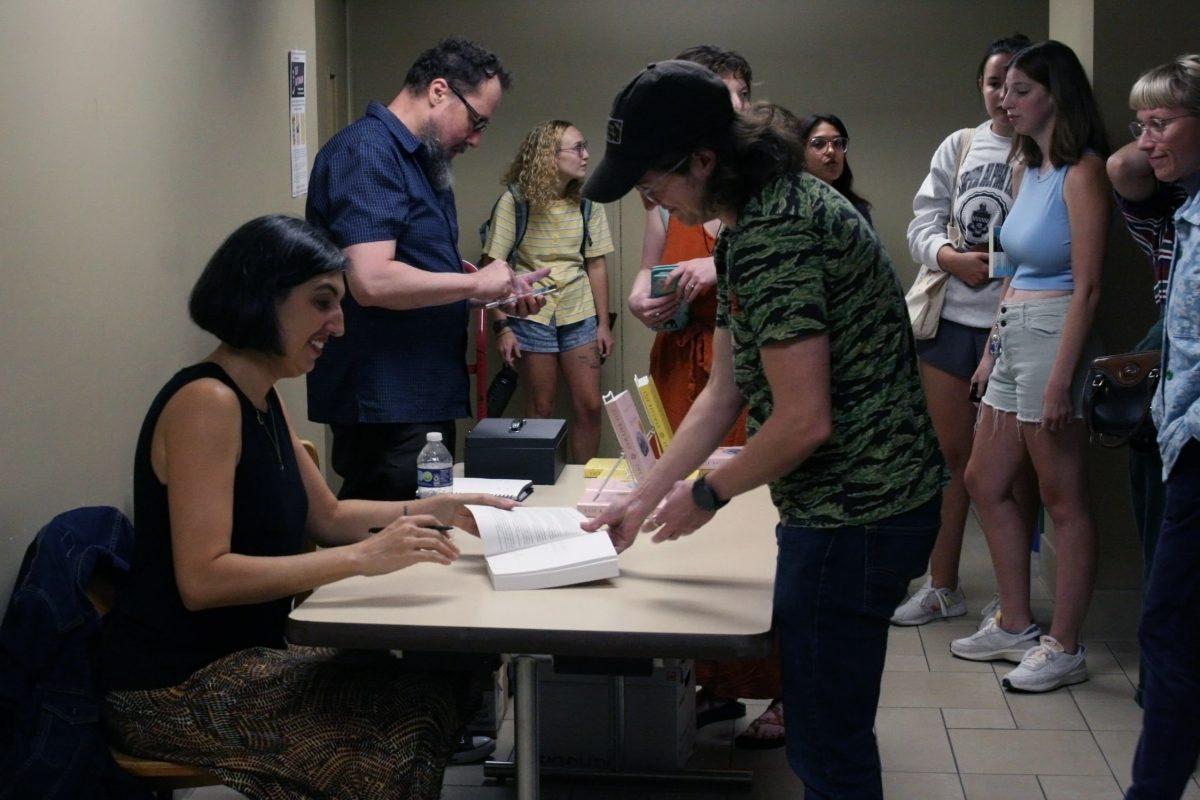
Q:
How do you think the college experience or college in general has changed since you graduated and left the college scene?
BATUMAN:
I mean, everything with technology has hugely changed. The email at first was this kind of fun, exciting thing. I mean, a lot of the young people I know don’t really use email anymore. And when you do, it’s kind of annoying. My email has become a horrible burden. I think it’s already like that for college students, like the paperwork stuff is all in your email. I think that like Selin in “The Idiot,” which is true to my experience, she has this feeling of being very isolated and not knowing a lot. She has friends, but she doesn’t know that much about what people’s lives are actually like or what’s going on. I think that if there had been social media, it would have been really, really different. She wouldn’t have been able to be quite so clueless about certain things. Also, I think job security has gotten a lot worse when I look back.
In general, I’d say with college-aged readers now, the thing that has surprised me more is the extent to which people say, ‘Oh, these things haven’t changed.’ I’ve seen, you know, ‘I had a relationship like this or this,’ saying that the whole thing was relatable to them. And that hadn’t changed that much. At one event, I remember a girl raising her hand and being like, ‘I found this book so relatable. I found it relatable in every way except for one thing — why is she not worried about money?’ It’s very true to how I was. I was not worried about money and some of my friends were and it was weird. It’s not that I came from a very rich family, it was just sort of an upper-middle-class family. It wasn’t like they didn’t have to worry about money — they were both in debt, but I just somehow wasn’t thinking about it. I think that if it had been 20 years later, I would have had to. I was thinking about jobs. There was kind of an expectation that things would work out. Even when I went to graduate school, everyone was talking about like, ‘nobody gets a job and what’s up with it,’ but I don’t know. It didn’t seem that real to me, I guess because I was still used to the idea that society was going to take care of everyone.
Q:
Do you have any words of advice for aspiring writers and/or journalists?
BATUMAN:
I feel like for me, and I think for a lot of people, especially a lot of young women writers, there’s a constant negative voice that’s saying, ‘Who do you think you are? Why are you doing this? Why are you sitting inside? Everyone else is out there accomplishing things.’ But, you go out and you record and then you have to sit down and sort of process it all and write it all and it’s frustrating that it’s not happening faster. You just have to think that you’re doing something important and that society needs people who are sort of withdrawing themselves from the capitalist treadmill periodically to just think about what’s going on or to inform people about what’s going on.
Also, I’m teaching creative writing now at Barnard to undergraduates, and I’m realizing that more than half of the class are children of immigrants who are writing a lot about other cultures, and a real issue that we’re working with is how much can you assume that your reader knows. That means thinking about who your audience is , and I realized that it’s sort of like the thing that jobs like 20 years ago when I was starting, if you write for somewhere old school like The New Yorker, they have people there called ‘the readers,’ and they tell you ‘the reader is not going to understand.’ It’s actually true that The New Yorker has them. Someone explained this to me once because I was kind of frustrated with like, ‘Why do I have to put in all this extra explanation and stuff like that, like everything sounds like a Wikipedia article,’ and they were like, ‘No, The New Yorker has accomplished this wonderful thing, which is over all this time they’ve made such a solid expectation that anyone can pick up a New Yorker anywhere and know that the first paragraph seems sort of out there, but the second paragraph is gonna bring you back and you know that all of the loose ends are going to be tied up and it’s all going to be comprehensible to this certain kind of American person.’ But I think that those models of readership are really in flux, and that we have more of a chance than we did before to make our own readership and to think about who you’re writing for and think about the conversation with them. Think of it more kind of horizontally as a conversation with your readers rather than trying to get past different gatekeepers, which is how I thought of it a lot when starting.
And don’t be demoralized if you write bad stuff because everyone writes bad stuff. When I was in grad school, I was reading the first draft of “Anna Karenina,” and it’s not even called “Anna Karenina,” it’s called, “You go, girl.” It’s not good. I just think [the finished Anna Karenina] is one of the most polished, perfect novels in existence, and just the fact that it started out kind of embarrassing is kind of like, ‘nobody gets to skip the [bad] part.’ All of the things that I’ve written, even the things that I’m happy with, they all started out were I was really not happy with them. Then I was always kind of frustrated. Like, ‘why did it take me so long?’ But nobody actually gets to skip the part where you write bad stuff.
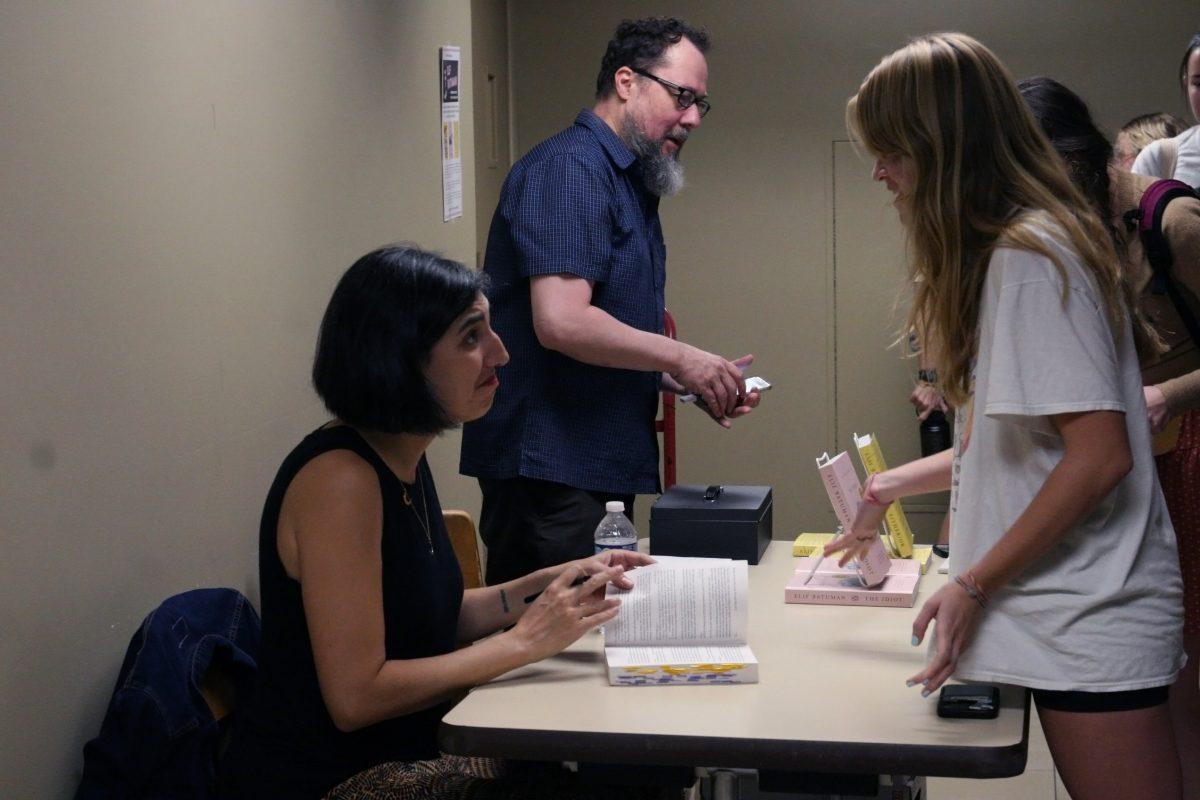
Q:
I finished “The Idiot” last week; It was so good. Like I said, it was so relatable.
BATUMAN:
I know. I hear that from a lot of people, that it was a little bit frustrating. It was definitely frustrating to experience. This is something I’ve been talking about with the students too is like, to what extent, if you’re describing something painful, is it okay to transmit that pain to the reader? Because we definitely don’t want them to get 100% of it, but you probably want to get some of it, right? I remember when I was a kid, we had to read ‘Huckleberry Finn’ in grade school. And I remember being like ‘this scene in the church is really boring’ and [the teacher] was like, ‘That’s the genius of Mark Twain is he thought this church was boring and he described it in a really boring way so that you would feel bored and that means that the book is working.’And I just remember thinking like, ‘there’s something a little bit wrong.’ Yeah, like I shouldn’t feel this way.
Q:
And so the book “Either/Or” is a sequel, right?
BATUMAN:
They can be read separately […] I didn’t actually really want to write a second book about college because meanwhile my life is going on and I want to write about later stuff. But I felt like I had to do that. So it’s just her sophomore year.
Q:
Do you plan on doing her junior and senior [years] and keep going?
BATUMAN:
No, I’m working on a book now. “Either/Or” ends in 1998, and the next one picks up in 2001. It’s not the whole year in a book, I think the book I want to see spans like 10 years and it’s gonna be in little sections, so like 2001 to 2010. We’ll see, I’m trying different forms. I’m just trying to have little pieces that are like short stories.
Edited by Annie Goldman | [email protected]
Copy edited by Sophie Gromowsky and Sterling Sewell | [email protected]

